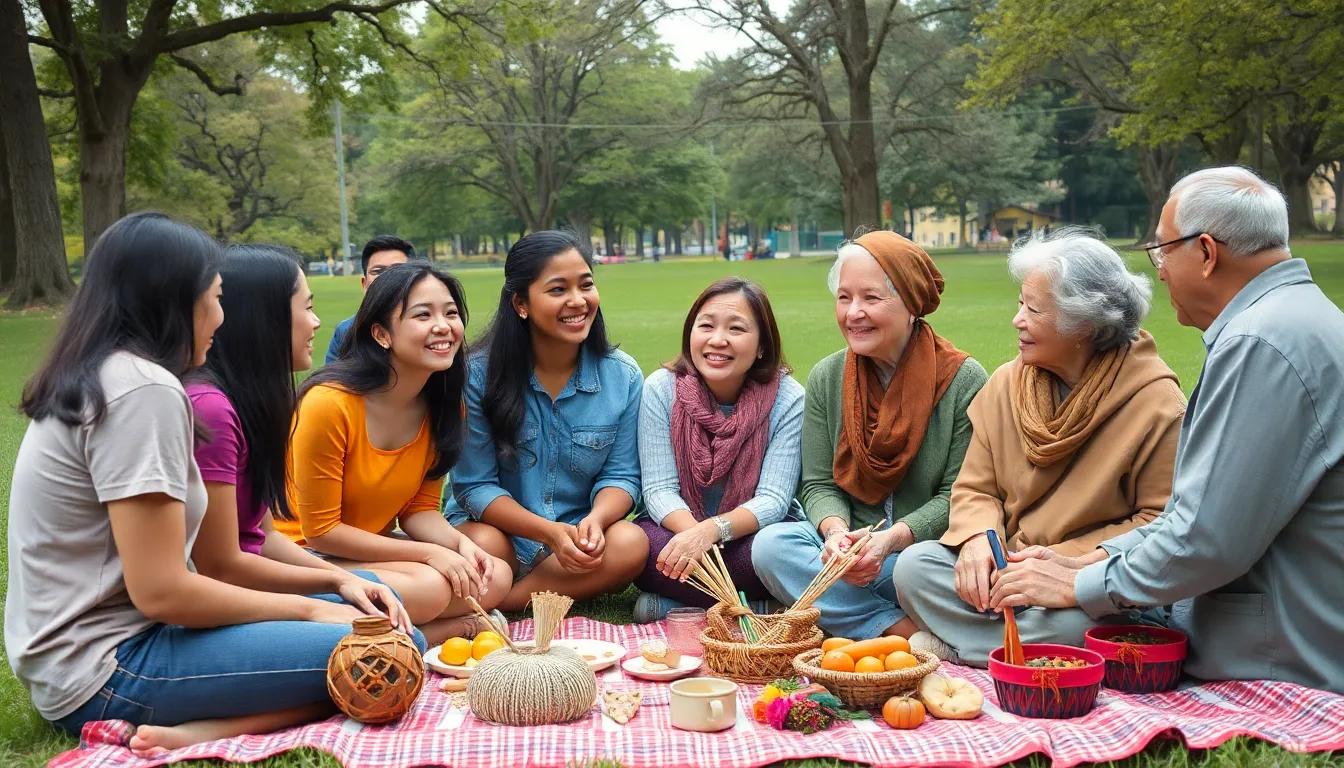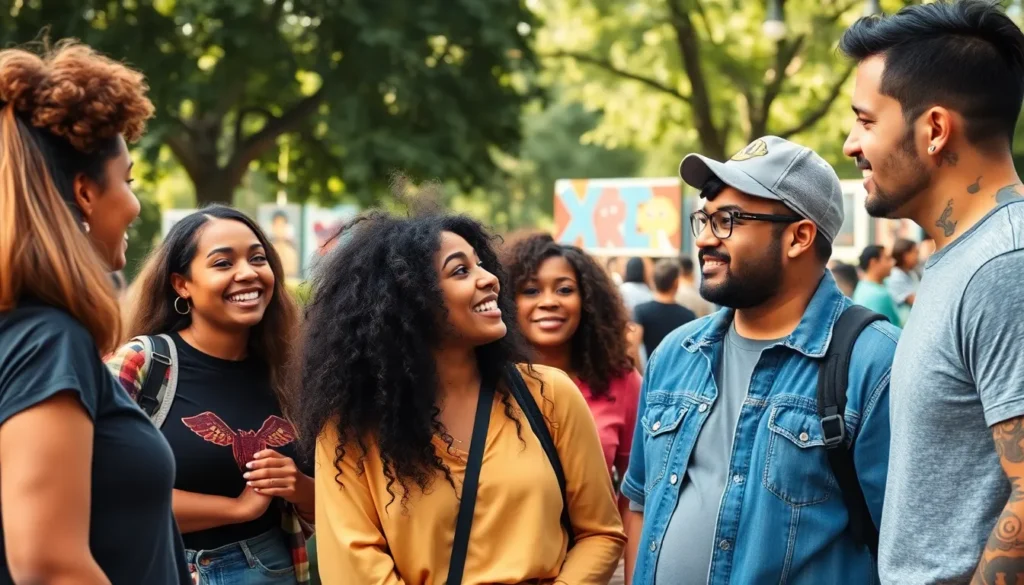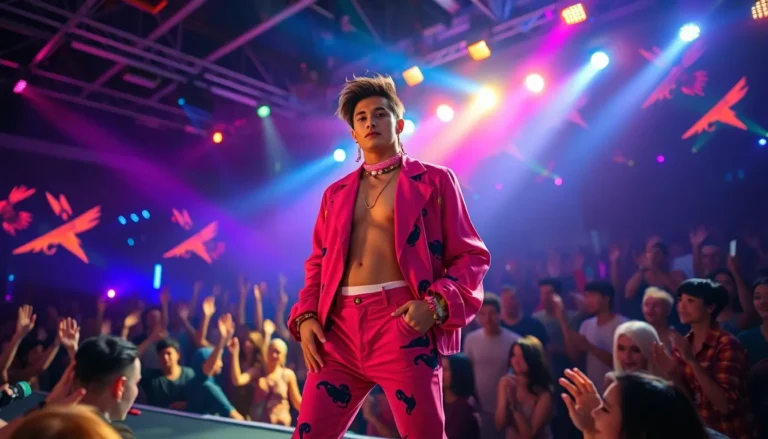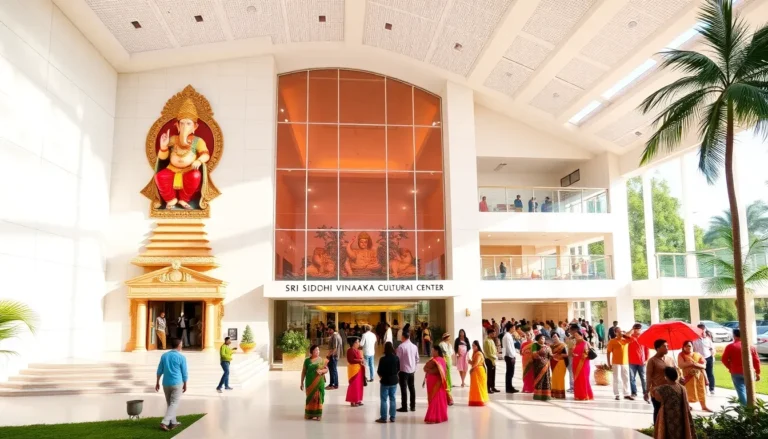Table of Contents
ToggleTraditions are like that quirky uncle at family gatherings—sometimes charming, sometimes baffling, but always a topic of discussion. As generations evolve, so do their perspectives on these age-old customs. What once felt sacred and untouchable now faces scrutiny and playful rebellion from younger generations eager to forge their own identities.
Millennials and Gen Z are shaking things up, questioning why they should adhere to traditions that don’t resonate with their values. Meanwhile, older generations cling to the familiar, believing that tradition is the glue holding society together. This tug-of-war between the nostalgic and the innovative creates a fascinating landscape where views on tradition clash and blend. Dive into this exploration of how different generations perceive tradition, and discover whether it’s time to embrace change or hold tight to the past.
Understanding Generational Views on Tradition
Younger generations tend to challenge traditional norms, embracing change over established customs. Millennials advocate for inclusivity and equity, often re-evaluating practices that no longer resonate with current values. Gen Z engages critically with traditions, favoring authenticity and social relevance.
Older generations, however, typically hold onto traditions, perceiving them as anchors of stability and identity. They often emphasize the importance of customs in fostering community ties and cultural heritage. Such contrasting perspectives lead to vibrant discussions about the role of tradition in modern society.
Cultural shifts emerge as each generation navigates the landscape of familial and social expectations. Modern technology facilitates diverse interactions, enabling younger individuals to share their views widely. As a result, dialogues around traditions evolve, allowing for a blend of old and new practices.
Generational insights shape how individuals perceive holidays, rites of passage, and rituals. While some embrace time-honored customs, others prefer to redefine or abandon them altogether. This negotiation of meaning highlights the adaptive nature of traditions, where relevance and significance are continually reassessed.
Understanding these views informs how society can balance heritage with progress. Each generation contributes unique perspectives that reflect shifting values. Embracing this dynamic interplay can create richer, more inclusive narratives around traditions, fostering mutual respect among generations.
The Importance of Tradition in Society

Tradition serves as a foundational element in societal structures. Both older and younger generations perceive tradition through different lenses.
Defining Tradition Across Generations
Tradition involves practices, beliefs, and customs passed down through generations. Younger individuals often challenge these elements, seeking reform in areas like inclusivity and authenticity. They engage in conversations around the relevance of certain traditions. Older generations typically regard these customs as vital to social stability. In their eyes, traditions promote shared values and community cohesion. This contrast sparks ongoing discussions between age groups regarding what traditions truly mean. Ultimately, defining tradition varies depending on personal and cultural context.
The Role of Tradition in Cultural Identity
Tradition plays a significant role in shaping cultural identity. Younger generations connect with traditions that resonate with their values and collective experiences. They emphasize authenticity in how traditions are observed and shared. Older generations often view traditions as essential for preserving cultural heritage. They believe these practices reinforce a sense of belonging and continuity. Engagement with traditions helps individuals navigate their cultural roots, fostering connections to past generations. Respecting this interplay creates opportunities for deeper understanding and appreciation across generations.
How Different Generations Perceive Tradition
Generational views on tradition reveal diverse interpretations and significance assigned to customs and practices. Each generation brings unique perspectives that influence their relationship with tradition.
Traditionalists: Holding Onto the Past
Traditionalists value customs and beliefs as vital to identity and community stability. Those from older generations often perceive tradition as a repository of wisdom, fostering a sense of belonging. Ceremonies and rituals serve as touchstones, reinforcing family connections and cultural heritage. Emphasizing stability, they resist changes that conflict with established practices. Many traditionalists argue that enduring customs nurture continuity and societal cohesion. Their unwavering adherence to rituals forms a protective shield against perceived chaos of modern life, contributing to their appreciation for customs. These individuals often seek to pass down traditions to future generations, keeping cultural legacies alive.
Millennials and Gen Z: Redefining Tradition
Millennials and Gen Z approach tradition with a critical lens, focusing on personal relevance and inclusivity. These younger generations engage in conversations that challenge established norms, advocating for modifications that reflect contemporary values. Social media platforms amplify their voices, enabling wide-reaching discussions about authentic representation in traditions. Experiences hold more significance than rigid adherence to customs for them. Many Millennials prioritize inclusivity, inviting diverse perspectives into traditional practices. Gen Z takes this further, emphasizing real-world impact and social justice in their engagement with customs. They strive to redefine what tradition means, shaping it to align with their ideals while creating a more relevant cultural narrative.
The Impact of Technology on Tradition
Technology significantly impacts how different generations perceive and engage with tradition. Younger individuals often utilize digital platforms to reshape cultural narratives, driving conversations that prioritize modern values of inclusivity and authenticity.
Digital Influences on Generational Views
Digital technologies transform traditional views by providing instant access to diverse perspectives. Diverse online communities foster discussions that challenge the status quo, encouraging younger generations to advocate for change. Access to information enables them to question outdated customs that don’t resonate with their beliefs. Online platforms serve as catalysts for social movements, highlighting the demand for equity and real-world impact. Adaptation of tradition occurs as these platforms help younger individuals express their ideas, allowing for a re-examination of established practices.
Social Media’s Role in Shaping Traditions
Social media acts as a powerful tool in redefining traditions across generations. It allows younger voices to amplify their concerns and showcase alternative viewpoints, influencing broader societal practices. Personal stories shared on social media platforms create awareness of social issues, sparking movements that promote change. Younger generations leverage these platforms to highlight traditions that foster inclusivity and authenticity, contrasting the more static views held by older individuals. Thus, social media serves not only as a space for dialogue but also as a vehicle for initiating reform in cultural customs.
Bridging the Generational Gap
Generational perceptions of tradition can create both conflict and connection. Young individuals often seek reform while older generations emphasize stability, leading to dynamic interactions.
Finding Common Ground in Tradition
Finding common ground starts with recognizing shared values. Both generations appreciate traditions that foster community and connection. Mutual understanding can emerge through discussing the motivations behind specific customs, allowing for a blend of old and new perspectives. Younger individuals often express a desire for inclusivity, while older counterparts emphasize the importance of cultural heritage. Collaborative events, such as community gatherings, provide platforms for these discussions. These interactions encourage individuals to discover meaningful ways to honor traditions while adapting them to modern contexts.
Encouraging Dialogue Between Generations
Encouraging dialogue promotes mutual respect and understanding. Setting up intergenerational forums allows participants to voice their views openly. Both generations benefit from sharing personal stories related to customs, illuminating their significance. Digital spaces facilitate these conversations, making it easier to connect across distances. Engaging in proactive discussions fosters an environment where everyone’s perspectives matter. Emphasizing active listening creates opportunities for compromise and innovation. Each generation can learn from the other, addressing misunderstandings and forging connections that breathe new life into tradition.
The dialogue around tradition continues to evolve as generational perspectives shift. Younger generations are redefining what tradition means in today’s context, advocating for inclusivity and authenticity. This ongoing conversation highlights the importance of adaptability in cultural practices.
Bridging the gap between generations requires open communication and a willingness to understand differing viewpoints. By fostering environments where traditions can be discussed and reimagined, society can create a richer tapestry of cultural heritage that honors the past while embracing the future. Ultimately, the interplay of old and new traditions can lead to a more cohesive and dynamic community.







